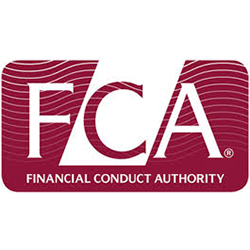Compliance
UK Regulator Names Greensill In GIML Fines Case

The FCA said it was not able to name Greensill Capital as a party in the matter until now. Greensill, a supply-chain finance business, has collapsed causing losses for a number of firms.
The UK’s Financial Conduct Authority has named Greensill Capital, the stricken UK supply-chain finance firm, as one of the parties involved in a saga that led to the FCA’s £9.1 million ($11.9 million) fine of GAM International Management Limited.
It also had punished former senior manager Timothy Haywood
late last year. (See
that report here.) The regulator said that Haywood received
gifts and entertainment, including travelling on a Greensill
private aircraft, without disclosing these in a "timely
manner."
Back in December, without naming Greensill, the FCA acted
against GIML and Haywood. GIML is part of GAM Holding, the
Zurich-listed group. Haywood was ousted by GAM in early 2019
after an internal probe found that he was involved in “gross
misconduct.” The FCA’s findings relate to the period 28
November 2014 to 8 March 2018 for GIML, and 20 October 2016 to 8
January 2018 for Haywood.
A spokesperson at the FCA said that until yesterday it had not
been possible to name Greensill as a party in the
case.
Fired
GAM sacked Haywood more than two years after its internal
investigation found that he was involved in "gross
misconduct." The business had suffered outflows caused by
GAM liquidating the £8.5 billion unconstrained/absolute return
bond strategy (ARBF), headed up by Haywood, after high levels of
redemption requests forced the firm to freeze the assets
following his suspension on 31 July 2018. As reports at the time
said, GAM found that "in certain instances Haywood may have
failed, in our judgement, to conduct or evidence sufficient due
diligence on some of the investments that were made, or make
accessible internal records of documents relating to these."
Haywood had been the investment director and business unit head
at GIML.
Yesterday, the UK regulator said that GIML “failed to manage
conflicts of interest arising from three transactions, two of
which were linked to Greensill Capital (UK) Ltd where Mr Haywood
was the investment manager making investment decisions.”
“Potential incentives were offered which would have provided
benefits to GIML or its parent company. Although these were
not taken up, they were not dealt with properly by GIML,” the FCA
continued. “Conflict of interest policies were not followed and,
as a result, any potential conflicts were not considered by those
who should have been responsible for doing so.”
Greensill’s financial woes hit a number of banks and other
financial firms,
such as the asset management arm of Credit Suisse. The affair
has caused political embarrassment. Former UK Prime Minister
David Cameron was a lobbyist for the collapsed Greensill
business, although he was not accused of wrongdoing.
In its statement yesterday, the FCA said that Haywood “received
gifts and entertainment, including travelling on a Greensill
private aircraft, but failed to record them in a timely manner
with GIML.”
“Although the FCA did not find evidence that Mr Haywood made
investment decisions because of these gifts and entertainment,
the fact that conflicts were not properly managed heightened the
risk that he may have been incentivised to invest for personal
interest,” it said.
The FCA said that GIML and Haywood agreed to resolve the cases
against them at an early stage of the FCA’s investigation and
therefore qualified for a 30 per cent discount. Haywood’s fine
includes the £22,437 of the value of the gifts and entertainment
he did not record in a timely manner.
“A robust framework, properly implemented and followed by all
staff, is required to manage any conflicts of interest. GIML
failed to do this. In an asset manager, this is vital in ensuring
decisions are taken for the benefit of the investors. Mr
Haywood’s disclosure failings are equally serious ones,” Mark
Steward, executive director of enforcement and market oversight
at the FCA, said. “The FCA expects asset managers and their staff
to be scrupulous in identifying and managing conflicts and their
risks. This case should send a clear warning to the market.”